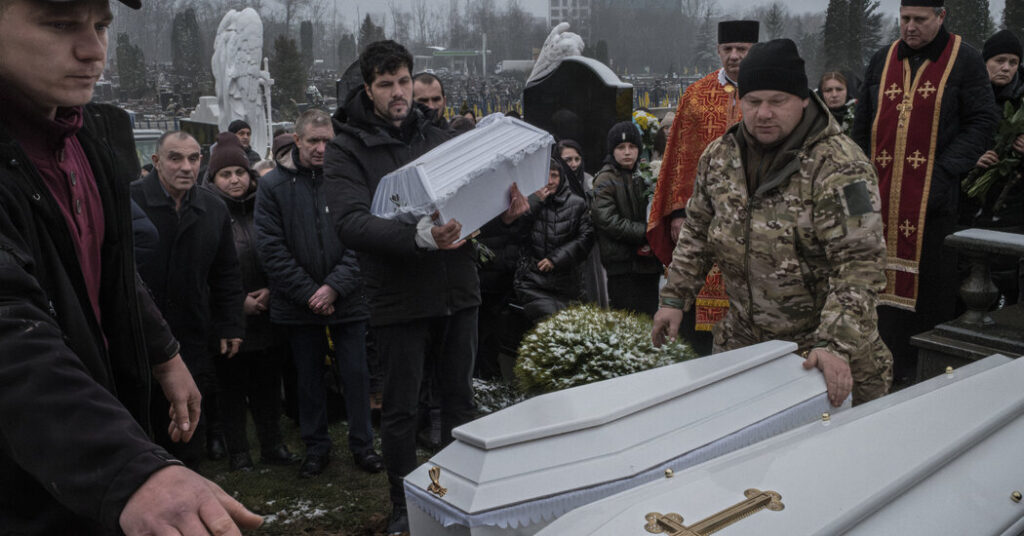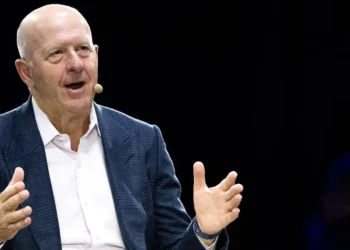To the Editor:
Re “Trump’s Proposed Ukraine Deal Is a Gift to Putin,” by Thomas L. Friedman (column, Nov. 25):
The United States has a clear and vital interest in supporting Ukraine’s effort to confront Vladimir Putin’s criminal war of aggression and bring it to a durable and defensible end.
Annexing that sovereign nation is part and parcel of Mr. Putin’s dream to weaken the United States and destroy NATO, twin goals to which he’s devoted his career, first as a K.B.G. agent and, since, as Russia’s autocratic ruler.
Capitulating to Mr. Putin’s demands and helping to advance his agenda is not putting America first. It’s putting the United States at risk — along with the indispensable alliance that’s underpinned eight decades of trans-Atlantic peace, security and prosperity.
Through nearly four years of brutality, sacrifice and loss, the people of Ukraine have met Mr. Putin’s indiscriminate savagery with heroism and strength. To abandon them now would be an unconscionable betrayal of American interests, aspirations and values.
Bob Deans Bethesda, Md.
To the Editor:
Re “The Question Hanging Over Peace Talks: What Will Putin Accept?,” by Paul Sonne (news analysis, nytimes.com, Nov. 26):
Mr. Sonne’s analysis of the Kremlin leader sitting back and watching as U.S. and Ukrainian officials scramble to negotiate changes to a U.S. peace proposal illuminates the irrational nature of the talks to end the war.
Vladimir Putin breaks into Volodymyr Zelensky’s house and steals valuable property. Now, Washington talks to Ukraine to determine what the armed robber can keep. All the while, the thief wants to keep his haul and tells the homeowner, “Take my deal, or fight on.”
Nothing new here. Ask Poland, Hungary, East Germany, Armenia, Azerbaijan, Belarus, Estonia, Georgia, Kazakhstan, Kyrgyzstan, Latvia, Lithuania, Moldova, Tajikistan, Turkmenistan, Uzbekistan and, yes, Ukraine.
Mr. Putin was born in the Soviet Union and has expressed nostalgia for it, calling its collapse a “geopolitical catastrophe.”
Ron Rinehart Mesa, Ariz.
Immigrant Family Separations
To the Editor:
Re “Pressure on ICE to Deport Leaves Children Without Their Parents” (front page, Nov. 17):
As President Trump’s border czar, Thomas Homan, threatens increased immigration enforcement and my colleagues on the front lines of ICE’s New York City courthouse dragnet witness daily violent family separations, family preparedness planning for immigrant New Yorkers has never been more urgent.
This is particularly true for mixed-status or noncitizen families, where a parent’s detention or deportation can leave children without a caregiver. As a public interest attorney, I’ve seen firsthand how this nightmare scenario becomes a devastating reality before parents have a chance to prepare for it. But planning can help ensure children’s future safety and custody.
Immigrant parents can — and should — take proactive steps to protect their family, offering peace of mind that no matter what happens, a designated trusted adult can immediately step in to provide security, stability and continuity of care for children’s medical, financial and educational needs.
If you’re a parent, P.T.A. coordinator, school administrator or concerned neighbor, help spread the word: An attorney can guide immigrant parents through options that fit their needs. The New York Legal Assistance Group’s Standby Guardianship project can help parents make a plan to ensure that children are cared for by someone they trust — even in the face of detention or deportation.
Julie Babayeva New York The writer is a supervising attorney for the New York Legal Assistance Group’s Standby Guardianship project.
Unplugging A.I.
To the Editor:
Voices are being raised all over the world about the dangers of artificial intelligence. My suggestion is that when you detect an A.I. system getting out of control, starting to be dangerous or just running off the rails, you just unplug it.
A.I. can do a lot of things, but so far it is unable to generate its own power, and without power it is largely impotent.
Peter S. Allen Providence, R.I.
The post The High Stakes in the Ukraine Talks appeared first on New York Times.




